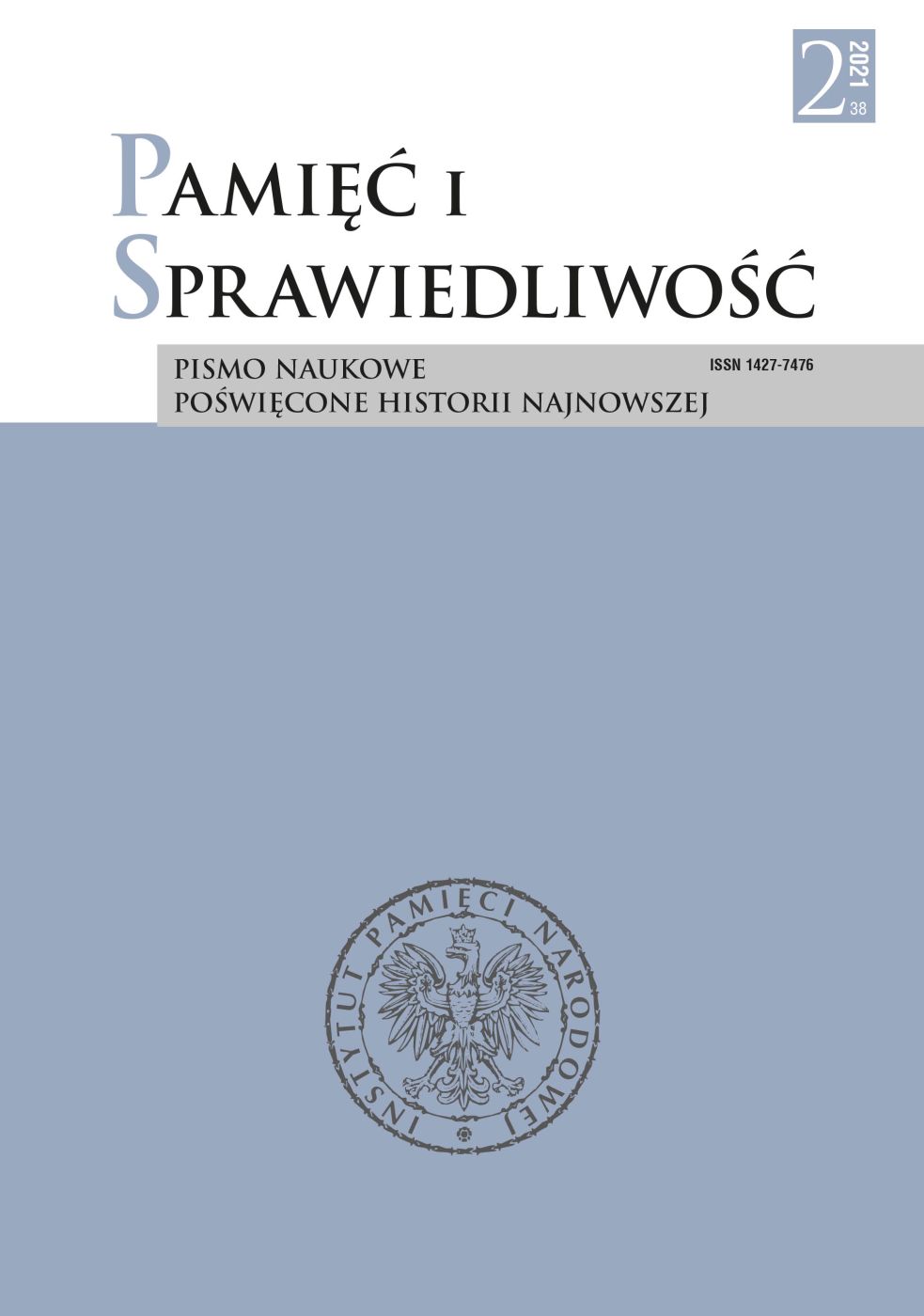„Więzień skryty i obcy obecnemu ustrojowi” – komunistyczny aparat bezpieczeństwa wobec pułkownika Franciszka Studzińskiego „Rawicza”, „Kotliny” (1893–1964)
“A Secretive Prisoner and Alien to the Present System” – the Communist Security Apparatus Towards Colonel Franciszek Studziński “Rawicz”, “Kotlina” (1893–1964)
Author(s): Dariusz RogutSubject(s): Military history, Political history, Security and defense, WW II and following years (1940 - 1949), Post-War period (1950 - 1989), History of Communism, Peace and Conflict Studies
Published by: Instytut Pamięci Narodowej
Keywords: Franciszek Studziński; Home Army; Second Polish Republic; communist repression; security apparatus; WiN (”Freedom and Independence”) Association; NKVD; Soviet camps; Soviet repression;
Summary/Abstract: Franciszek Studziński joined the Polish Legions as a volunteer in 1914, where he served in the 1st Infantry Regiment, with which he followed its entire combat route. He was also active in the underground Polish Military Organisation. In independent Poland, he served in the 25th Infantry Regiment, with which he survived the entire Polish-Bolshevik War. He was decorated for gallantry on the battlefield with the 5th Class Silver Cross of the Virtuti Militari Military Cross. He served in the Border Protection Corps as commander of the 6th Border Battalion in Iwieniec, and later in other units of the Polish Army. In the autumn of 1939, he made his way to Hungary, where he was interned. In summer 1941, he escaped from the camp and returned to Warsaw. From 9th December 1941, he was a commander of the Tarnopol District of the ZWZ-AK (the Union of Armed Struggle). In August 1944, he was arrested by Soviet counterintelligence and imprisoned in Kiev. Later he was transferred to the NKVD POW and internment camp 174-454 in Diaghilev near Ryazan, and in July 1947, to camp 150 in Gryazovets. On 4 November 1947, he returned to Poland. Despite the failure of a secret police provocation, carried out in October 1952 (a proposal to join the alleged WiN Association), he was arrested in December 1952 and sentenced to almost 5 years in prison. He was released in 1955 on the wave of a political “thaw”. Ill and living in extreme poverty, he died on 23 May 1964. His fate during the second Soviet occupation and the collaborationist communist rule exemplifies the similar stories of the Polish Army, Home Army, the WiN Association and other independence organisations that sacrificed their lives for the Fatherland.
Journal: Pamięć i Sprawiedliwość.
- Issue Year: 38/2021
- Issue No: 2
- Page Range: 579-602
- Page Count: 24
- Language: Polish

